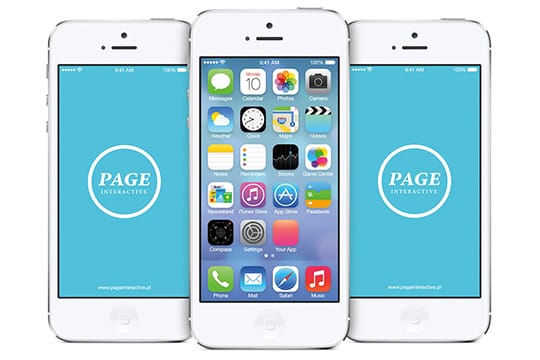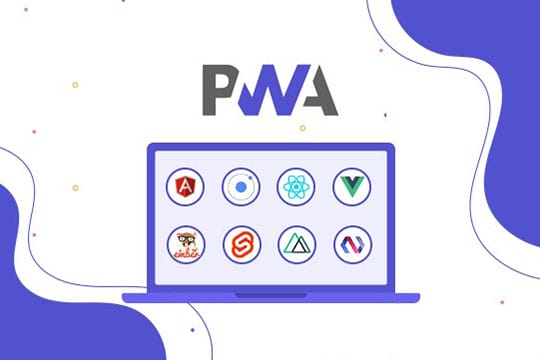When you create a new mobile application for your businesses, you have a wide range of options but make sure which solution is the right choice for you. Before picking the right solution for your next application several factors are important to remember. These are the major factors like the target audience, budget, timeline, team experience with the technology, and so on has to be considered. Let’s explore the three primary mobile application development (Native Mobile App, Web Application, and Hybrid Mobile App) and discuss the benefits and drawbacks of each mobile development in detail. By the end of the article, you will have a better insight into mobile development and be able to discover the right framework for your mobile app development.
What is a Native App?

When we talk about native mobile apps, Native apps are the applications that are written on native development languages and are developed with the tool that is supported by the specific platform. The native apps are coded in a language that supports natively by specific device operating systems. These native mobile apps are directly installed onto the devices. Users acquire these apps directly through the App Store or Google play store.
For example, the Native iOS app is coded with Objective-C or Swift and is compiled using Xcode, Where ad in native Android app language used to develop is Kotlin or Java and compiled are using Android Studio.
Recommended for you: Top UX Design Tips to Improve Mobile App User Experience.
What is a Web App?

A software program that runs on a web server is known as a web application or Web app. Web App is a single application that runs on various operating systems like Windows and iOS. Developers don’t require developing and sharing the updated version of the app for different OS users. It can be done easily by updating the web app on the server and all the users will get access to the latest version of the app.
What is a Hybrid App?

A hybrid mobile app is a blend, Hybrid app is the combination of both native and web app solutions. Hybrid apps are cross-platform development. The hybrid app core is written using web technologies. Hybrid apps are coded in a single language that runs on various platforms. The core of the application is written using languages like CSS, HTML, and JavaScript.
A hybrid mobile application is then encapsulated within a native application. The application can have full access to mobile devices with the use of the plugin. In this article, we dive deep into the pros and cons of hybrid mobile apps development.
Key Features

| Native Mobile App | Web App | Hybrid Mobile App | |
|---|---|---|---|
| Feature | Native | Web-only | Hybrid |
| Code Reuse | No | Yes | Yes |
| Device Access | Full | Limited | Full (with plugins) |
| Development Language | Platform-Specific | HTML, CSS, Javascript | HTML, CSS, Javascript |
| Cross-Platform Support | No | Yes | Yes |
| User Experience | High | Medium to High | Medium to High |
| Performance | High | Medium to High | Medium to High |
Best Hybrid App Frameworks

- React Native: React Native mobile application framework developed by Facebook. React Native is a building of React and JavaScript open-source framework. This framework is widely preferred to create native products on hybrid platforms.
- Ionic: Ionic is a CSS based open-source platform for hybrid mobile application development and it will reach the highest potential when it is combined with AngularJS.
- Mobile Angular UI: This is a mobile UI framework like jQuery Mobile or Sencha Touch. Developers who are familiar with using Twitter Bootstrap or AngularJS then this framework will be a good choice.
- jQuery Mobile: If you are not sticking to the template design and you want to create something extraordinary then jQuery Mobile is a great choice for you. JQuery Mobile is a touch-optimized web framework.
- Flutter: Flutter was developed by Google. This is an open-source cross-platform development tool. Flutter uses dart as its programming language. You can develop native feel applications that run on multiple platforms. The latest version of Flutter is Flutter 1.20.
- Xamarin: Without sacrificing the native design you can design the universal apps that run on multiple devices then the best choice is the Xamarin framework.
- Onsen UI: With the Onsen UI you can develop beautiful hybrid mobile apps using JavaScript, HTML5, and CSS. It works with or without any other frameworks like React, Angular, Meteor, and Vue.
- Corona SDK: Corona SDK is one of the cross-platform framework ideals for creating games for mobile devices and desktop. You can develop an app that is compatible with multiple devices like iPhone, Android phones, Apple Tv, Amazon Fire, Tablets, etc.
- PhoneGap: If you have knowledge of JavaScript, CSS, and HTML5 then you can start using this PhoneGap framework. PhoneGap is a free cloud base technology.
You may like: Mobile App Monetization: Effective Ways to Monetize Your App in 2020.
Advantage of Hybrid App Development

1. Allow You to Target a Wider User Base

Since hybrid apps can be used on a wider range of devices, so you can target a higher user base and faster. A hybrid app can be used on mobile devices with Apple iOS or Android operating system. Choosing hybrid applications results in greater profits as there is an increase in the number of users. With a Hybrid application, you can target both the users (iOS and Android).
2. Shorter Development Timeframe

Hybrid development has a faster progress rate than native development especially in the case of developing two native apps. Since it will be a double your workload. The simple alternative is to build a single hybrid app that can be used in a wide variety of mobile devices from Android to iOS and even lesser user platforms like Blackberry and Windows.
3. Less Expensive to Build and Maintain

When you analyze the native apps, hybrid apps are less expensive to develop and maintain. The programming language used to build the hybrid application is less costly so that the overall development and maintenance cost is relatively less. Whereas Native apps used complex languages like Java and Objective C, iOS SDK, Android SDK for app development. Hybrid apps use simpler mobile development frameworks in conjunction with HTML, JavaScript, and CSS.
By utilizing these less difficult types of technology, you’ll have a lot of prospective developers to choose from. Hybrid has a significant advantage in the initial development and routine maintenance cost.
4. Require a More Extended QA Testing and Integration Phase

The native app is tested for a single type of OS as a result; the native app has a shorter testing phase. But in hybrid applications, the QA testing process is intensive since the app is compatible with a wider variety of devices and operating systems. The testing team has to evaluate the app performance in operating systems like Android, IOS, and also has to ensure that the app is compatible with the Blackberry and Windows devices.
5. Fast Deployment

Seriously consider using a Hybrid app if you want to launch the application in the App store as fast as possible. MVP (Minimum Viable Product) approach demands faster deployment.
If you want your application on the App store as quickly as possible then you have to consider using Hybrid framework development.
6. Cloud Support & Enterprise Level Solutions

Many Hybrid apps can be integrated into the cloud with the concept of exchange integration code. The best example is the Titanium Ionic and PhoneGap frameworks.
With the help of plugins, developers can easily upgrade the app functionality, design, and its correctness.
Hybrid apps support easy integration with the top cloud providers like AWS, Microsoft Azure, and Google Cloud, etc.
Disadvantages of Hybrid App Development

1. Slow Performance

Analyze both the Hybrid app and native app. Both the apps have similar functionality but a hybrid app has a high-performance level when compared to a native application.
2. Functional Limitation

Hybrid application development won’t be the right choice for you if your application development involves complex functionality and features.
Some of the hybrid frameworks like PhoneGap won’t support entire native features. In case your application involves many complex features and functionalities then hybrid app development is not the right choice for the development.
3. You may have a long wait new features update:

For the Android and iOS platforms, Google and Apple release new features every time. If the application is developed in a Hybrid framework it takes time for the developers to add up the new features. This is because native applications are given SDKs which is a lot quicker than the cross-platform frameworks.
4. Lack of 3D Support and Graphics

If you want 3D element or eye-catching graphic design on your application. Then the native app is the better choice because the hybrid apps will not have eye-catching graphics and 3D support. If u need to have the 3D support on Hybrid app developers have to make an extra effort to fulfill the design quality gap with the help of third-party tools like Unity 3D.
You may also like: What’s the Trends About Mobile Application Development In 2020?
Concluding Thoughts

After considering all the pros and cons of the Native, Web, and Hybrid app, identifies which frameworks will be the appropriate fit for your mobile app development goal. Web apps are mobile-optimized web pages that look like an app, whereas Hybrid and Native apps are installed on the devices directly through the app store. Hybrid app development is worth considering if you don’t want to build and maintain two code bases.
Cross-platform development enables you to convert one source code into native codes for different operating systems (Android and iOS). Simply don’t use hybrid frameworks for every mobile application unless you want to drastically decrease the time & cost of app development.
This article is written by Lakshmipriya. She is a Digital Marketing Professional at Squashapps, a leading enterprise app development company. Lakshmipriya enjoys learning about Digital Marketing & Technology. She is an avid reader and loves writing impeccable content pertaining to Application Development and Digital Marketing. She holds a post-graduate degree in MBA.





